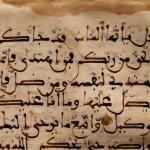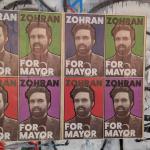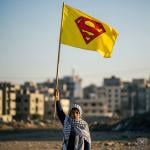 |
|
And our voices would help
|
Today, Western Muslims have an enormous responsibility knocking at their door. In all societies undergoing upheaval, there exists a primordial period immediately subsequent to political and economic transitions. In this period, the future is uncertain. Key factors and events in this period can end up dictating the affairs of nations for decades to come.
Considering the context of many Muslim-majority societies, we must understand that one ruthless group of leaders might be replaced by yet another group of ruthless individuals with rigid ideologies. Even if they initially camouflage themselves in the flags of freedom, they might still opportunistically exploit the enthusiastic political atmosphere in order to enrich themselves at the expense of their nation’s people.
This situation would be incredibly sad. So much can be done for countries such as Egypt and Tunisia right now, and similar circumstances might not exist in the near future. Unfortunately, history is filled with failures, even at the apex of success. We must ensure that we do not fail at this moment.
Before we start to think about solutions, we must concede that a long-standing divide exists between the West and Muslim world. Even if this divide is often artificially cooked up by special interests, these fanned flames of hatred still create serious diplomatic conflict between these sides of the world. Thus, any advice given by the West regarding transitional governments in the Muslim world will get taken with a grain of salt. Regardless of whether the advice is correct or not, many in the Middle East will be inclined to doubt the opinions that are voiced from the megaphones of Western media.
In order to ensure that bridges can be built rather than burnt, we need a voice that can speak for both sides. Western Muslims, especially American Muslims, are common denominators between the Muslim world and the West. Those American Muslims with little conflicts of interest and many common interests can bring about an immensely powerful voice for change. The Western world has its problems, but it also has technology, wealth, and a popular will for open societies which is unmatched. The Muslim world has its problems, but it also has tremendous potential for improvement.
Western Muslims can advocate like no other Western minority group for changes that need to occur in the Muslim world, especially at this critical time. As a transnational alliance working towards multi-track diplomacy, we can be instrumental in helping to foster a strong civil society in these communities, which can thus help to sustain good governance and socioeconomic progress.
So how do we involve Western Muslims, and their respective ethnic expatriate communities, at a greater level? We need to network with leaders from social movements in places like Tunisia and Egypt — especially the open-minded youth leaders — and we need to work with them to advocate for their needs at the level of Congress and the executive branch. Grassroots people-to-people communication is imperative if we want to build bridges abroad.
Ideally, this involvement would manifest itself as a delegation of Western Muslim leaders that traveled to the region during the transition government period. In turn, this could create leverage for a post-delegation Congressional hearing on social change in the Muslim world, as well as a creative media campaign that could alter misconceptions and stereotypes of international communities in order to bring about new paradigms. In the wake of US Representative Peter King’s untimely hearings on American Muslim radicalization, a game-changing event is needed more than ever in order to counter intolerance towards Muslims in the West.
By engaging intensively with America and Europe, Western Muslims can help to bring about the right mindset and modus operandi towards foreign policy in the Muslim world. At the same time, their intimate interconnectedness with Muslim societies can ensure that their voice resonates on the ground.
To achieve sustainable development in the Muslim world, it is imperative that an open, answerable, and impartial rule of law be allowed to exist in these nations. No government will be successful unless it provides a legitimate and representative system of governance which reflects the will of the people. If we do not offer peaceful and constructive transitions for societies in turmoil, bloodshed and terrorism become inevitable. We need Western Muslims to work towards an international civil rights movement in the Muslim world, and we need it now.
(Photo: Colin David Anderson)
Ruby Amatulla is the executive director of Muslims for Peace, Justice, and Progress (www.mpjp.org). She is an international businesswoman and activist who previously participated in the American Muslim Iraq Peace Initiative.











